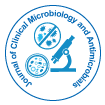

Opinion - (2024)Volume 8, Issue 2
Eubacterium, a genus of bacteria inhabiting the human gut, has garnered increasing attention in recent years for its pivotal role in maintaining gut health and potentially influencing broader aspects of human physiology. As researchers delve deeper into its functions and interactions within the microbiome, a clearer picture emerges of how these microbes serve as guardians of health and catalysts for innovative therapeutic approaches.
Deciphering the role of Eubacterium in gut health
Within the complex ecosystem of the gut microbiome, Eubacterium species play multifaceted roles that extend beyond simple digestion. These bacteria are essential contributors to metabolic processes, including the fermentation of dietary fibers and the production of Short-Chain Fatty Acids (SCFAs) such as butyrate. SCFAs serve as energy sources for intestinal cells, exert anti-inflammatory effects, and help maintain the integrity of the gut barrier, thereby influencing immune function and overall gut health.
Moreover, Eubacterium species contribute to bile acid metabolism, which not only aids in fat absorption but also impacts cholesterol metabolism and potentially influences cardiovascular health. Their ability to modulate the gut environment through metabolite production highlights their significance in preventing dysbiosis and associated diseases such as Inflammatory Bowel Diseases (IBD) and metabolic disorders.
Beyond the gut: Implications for systemic health
Recent research suggests that the influence of Eubacterium extends beyond the gut, exerting systemic effects that impact various aspects of human health. These bacteria have been implicated in metabolic homeostasis, with studies linking their abundance to improved glucose metabolism and reduced risk of obesity and type 2 diabetes. The production of SCFAs by Eubacterium may also play a role in regulating immune responses and inflammatory pathways, thereby influencing conditions ranging from allergies to autoimmune diseases.
Furthermore, emerging evidence indicates a potential role of Eubacterium in neurological health through the gut-brain axis. The microbiome's ability to produce neurotransmitters and neuroactive compounds suggests that Eubacterium and other gut bacteria may influence mood, cognition, and behavior, opening new methods for understanding and treating mental health disorders.
Challenges and opportunities in Eubacterium research
Despite growing recognition of their importance, studying Eubacterium poses challenges due to the vast diversity within the genus and the complexities of microbial interactions in the gut. Variations in Eubacterium populations among individuals, influenced by factors such as diet, lifestyle, and genetics, necessitate large-scale studies to elucidate specific roles and mechanisms of action.
Moreover, translating research findings into clinical applications requires rigorous validation through well-designed clinical trials and longitudinal studies. Establishing causal relationships between Eubacterium dysbiosis and disease states is necessary for developing targeted interventions, including probiotics, prebiotics, and dietary modifications aimed at promoting Eubacterium abundance and function.
Controlling Eubacterium for therapeutic innovations
The potential therapeutic implications of Eubacterium extend to preventive medicine and personalized health strategies. Enhancing Eubacterium populations through dietary interventions rich in fibers and polyphenols, which serve as substrates for their growth, holds assurance in promoting gut health and reducing disease risk. Probiotic formulations containing specific Eubacterium strains may also offer targeted therapies for conditions associated with dysbiosis, paving the way for microbiome-based precision medicine.
Furthermore, collaborations between researchers, healthcare providers, and pharmaceutical industries are necessary for advancing microbiome science and translating discoveries into clinical practice. Integrating microbiome health assessments into routine healthcare protocols could revolutionize preventive care, allowing for early intervention strategies customized to individual microbial profiles.
The study of Eubacterium illuminates the intricate relationship between gut microbes and human health. As guardians of gut health and potential influencers of systemic well-being, Eubacterium species offer a fertile ground for scientific research and therapeutic innovation. Controlling their beneficial properties and understanding their roles in health and disease, we can unlock new methods for improving health outcomes and enhancing quality of life through microbiome-centric approaches. Adopting this frontier of microbiome research potential to redefine healthcare paradigms and empower individuals to cultivate and maintain a thriving microbial community within.
Citation: Salinger H (2024) Eubacterium Insights: Discoveries and Their Potential in Gut Health and Systemic Effects. J Clin Microbiol Antimicrob. 8:192.
Received: 17-May-2024, Manuscript No. JCMA-24-31988 ; Editor assigned: 20-May-2024, Pre QC No. JCMA-24-31988 (PQ); Reviewed: 04-Jun-2024, QC No. JCMA-24-31988 ; Revised: 11-Jun-2024, Manuscript No. JCMA-24-31988 (R); Published: 19-Jun-2024 , DOI: 10.35248/jcma.24.8.192
Copyright: © 2024 Salinger H. This is an open-access article distributed under the terms of the Creative Commons Attribution License, which permits unrestricted use, distribution, and reproduction in any medium, provided the original author and source are credited